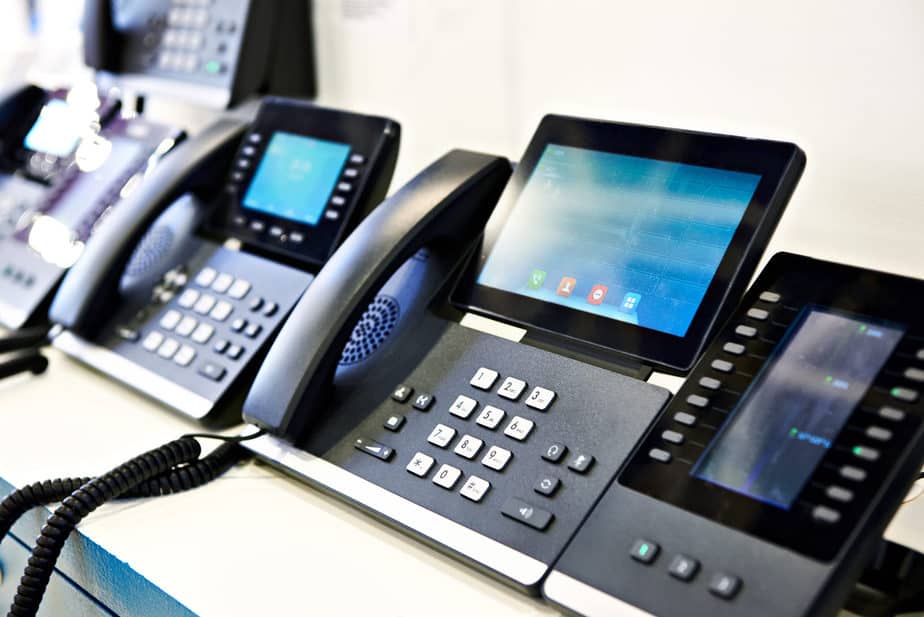Phone systems have always been an essential component of any organization. With the proper setup, they can streamline communication between your business and customers. It also speeds up interaction among your employees or teams, which can go a long way in improving business efficiency. Moreover, considering the prevalence of remote working setups, phone systems are more critical than before.
But as you may already know, smartphone tech is developing at a rapid pace. You can even argue that at the rate it’s going, phone systems are bound to become obsolete in the business industry.
For that reason, there’s no better time to upgrade your existing business phone system to keep up with modern technologies. Unfortunately, such an endeavor can be quite costly, and you most certainly don’t want to invest in something that won’t yield great results initially. So when is the perfect time to upgrade your business phone system? To answer that question, here are six things you need to consider:
1. Is your existing system still working for you?
First off, you need to assess whether your existing system is still working out for the business. Is it still functional? Are you encountering any issues lately? Is it still as efficient as you initially implemented it? Are there any features you want that aren’t currently on your phone system?
Depending on your answers to these questions, you might want to consider upgrading to a better system. One of the systems you can consider is a cloud based phone system. Doing so should drastically change your experience and generally provide more features for you and your employees to work with.
2. Is there still support for the system?
You should also consider whether your existing system still has ongoing customer support or if it still receives any updates or patches from its developers. If it does not, that might mean they have already stopped supporting the platform. In that case, it’s high time for you to finally let go of the system and switch to another provider, preferably one that offers more features and is less expensive.
3. Are you planning to grow or scale up?
One of the main reasons why organizations invest in higher-end phone systems is for scaling purposes. During the scaling process, you might have to purchase newer software and hire more people, which tends to make business operations quite hectic. Since your phone system will play a massive part in maintaining the communication lines, it would help if you could upgrade them before your project.
4. Are your IT costs still manageable?
While it’s natural to assume that more benefits mean higher costs, it’s a well-established fact that older phone systems tend to have higher price and maintenance costs, leading to higher overall IT costs.
If you feel like your business’s IT costs are no longer manageable, it might be a good idea to upgrade your current system or switch to a provider with more affordable options. For your reference, a phone system for small businesses can usually cost around USD$5,000 to USD$10,000. That does not include the price for each handset, which is typically around USD$300 apiece, and the maintenance costs.
5. Do you have valuable data to protect?
Although a lot of people might beg to differ, data generally varies in value. For example, your login credentials on a banking app are undoubtedly much more valuable than your credentials on social media platforms. Similarly, some business data are more valuable than others. If you think your data has become significantly more valuable, then it’s safe to say that you’re in dire need of an upgrade.
That’s because modern phone systems have security measures in place, while old systems typically don’t. Hence, an upgraded phone system can go a long way if you intend to maximize data security.
6. Do you have remote employees?
You should also consider the current state of your existing employees. If your business consists of a handful of remote workers, an upgrade on your phone system might be worth considering.
Not only will it make things easier for your remote workers, but it will also facilitate better collaboration between you, your in-house employees, and the remote workers. Take note that not all business phone systems support remote communications. Make sure the phone system supports cloud computing technologies, as it will be the key component to allow for communications among remote users.
Conclusion
As beneficial as it may be, not all businesses require an upgrade on their phone systems. Perhaps the existing system is already sufficient for your purposes. Maybe you still have other matters to attend to that will require your time and money. Regardless, there are a lot of things you need to consider before upgrading your phone system.




